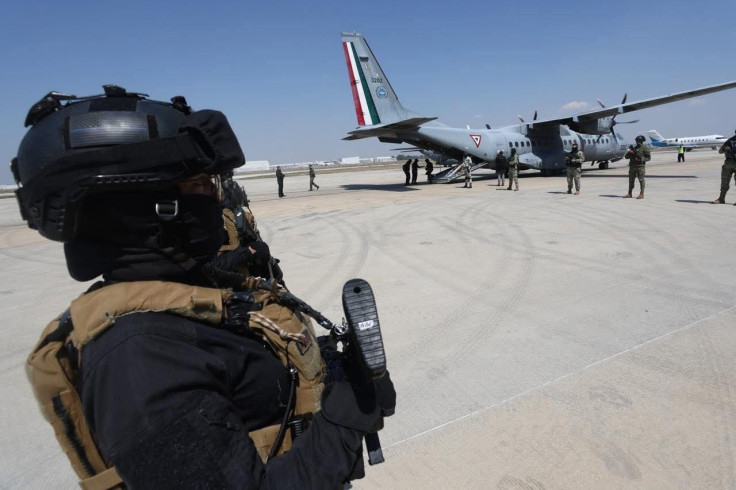
In early September, the United States launched a military strike in the Caribbean Sea that killed 11 people allegedly tied to the Venezuelan gang Tren de Aragua. The operation marked the beginning of a broader campaign, with President Donald Trump authorizing the deployment of thousands of U.S. naval troops to South America under the banner of combating drug trafficking.
The move has raised tensions across the region, as U.S. forces have conducted multiple strikes on small boats off the Venezuelan coast, resulting in the deaths of at least 27 people.
Last week, a White House official said President Trump is prepared to use "every element of American power" to stop drugs from entering the United States, adding that more operations near Venezuelan waters could follow.
Despite rising tensions between the United States and Venezuela, Mexican officials say they do not believe their country faces a similar risk of U.S. military action, at least for now.
In interviews with The New York Times, three senior Mexican officials said that cooperation between Mexico and the United States on issues such as migration, drug trafficking and trade has produced significant results. They added that this progress makes it unlikely the Trump administration would risk damaging the bilateral relationship by conducting military strikes on Mexican soil.
The officials, who requested anonymity due to the sensitive nature of the topic and hold positions within Mexico's foreign affairs and security agencies, told The New York Times they have received little indication from their American counterparts that Mexico should expect a military intervention.
One official noted that although Mexico does not foresee any strikes in the near future, developments in the Caribbean remain a long-term concern for national security experts.
Another official said there is daily cooperation between the two countries in combating drug cartels, including regular U.S. surveillance flights over Mexican territory, as reported by The New York Times earlier this year.
Similarly, two Trump administration officials, speaking on the condition of anonymity to The New York Times, said the United States continues to focus on collaboration with Mexico, especially given the progress the administration of President Claudia Sheinbaum has made in its first year addressing organized crime.
According to the report, U.S. officials believe that repeated warnings directed at Mexico have encouraged the government to intensify its efforts against drug cartels. One official added that Secretary of State Marco Rubio's visit to Mexico in September reaffirmed the commitment of both governments to ongoing cooperation.
However, according to The New York Times, U.S. and Mexican officials are not the only ones who believe a military strike is unlikely at this time.
Five cartel members interviewed by the newspaper said the cartels are not concerned about such an intervention. Instead, their primary focus remains the ongoing turf war in Sinaloa between Los Chapitos and La Mayiza, which began more than a year ago and has resulted in the deaths of over 2,000 people in northern Mexico.
One cartel member responsible for security operations in Culiacán, Sinaloa, told The New York Times he is not worried about U.S. military action because he believes President Sheinbaum would prevent it. "It will never happen," he said. "He [Trump] cannot do that."
He also said that even if the United States struck smugglers at sea, the impact would be limited. "We do not rely only on maritime routes; we have land and air routes as well," he said. "There is always a way."
© 2025 Latin Times. All rights reserved. Do not reproduce without permission.







